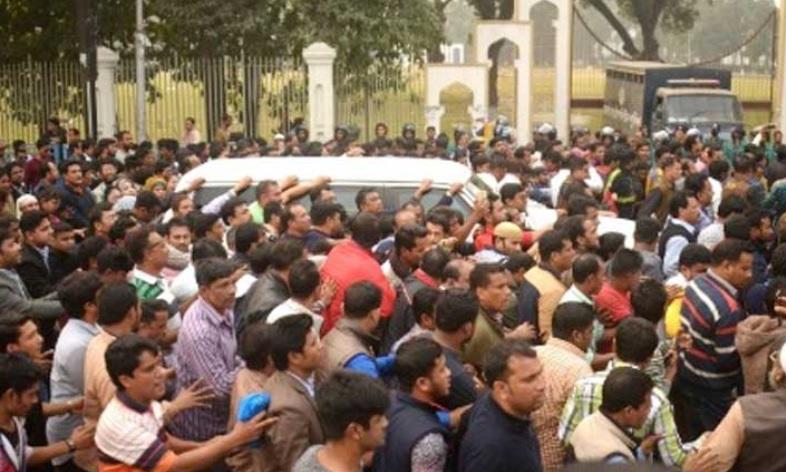
Calls for reforms and elections strengthen in crisis-hit Bangladesh
text_fieldsDhaka: Leaders of various political parties in Bangladesh on Saturday expressed grave concerns over the complete collapse of law and order in the country along with rising taxes, commodity prices, gas and electricity bills.
Addressing the first national council of the Amar Bangladesh Party (AB Party) in Dhaka, the top leadership of various political parties slammed the interim government led by Chief Advisor Muhammad Yunus for its failure to control commodity prices and law and order.
"Commodity prices are now skyrocketing. Even in such a big crisis, those who can suddenly increase tax and VAT on 100 products on a government order, those who can close TCB (Trading Corporation of Bangladesh) truck sales and stop the system of providing food to the hungry and needy, must understand that they are very theoretical. They do not understand daily life, which is bigger than theory," Mahmudur Rahman Manna, President of Nagorik Oikya, was quoted as saying at the event by the country's leading Bengali daily Prothom Alo.
Severely criticising the Yunus-led regime, the Bangladeshi politician - a former Secretary of the Awami League - stated that the interim government's inexperience and lack of understanding about a common man' struggle is now quite visible.
"They understand the definition of economy well, but they do not understand that economy is the calculation of people's daily lives. People are in great trouble in their daily lives. In this situation, people will no longer trust reforms. We want reforms, and at the same time we want elections. It is necessary to organise elections by carrying out reforms as soon as possible and with competence," Manna mentioned.
In his address at the event, Rashed Khan, General Secretary of the People's Rights Council, emphasised that the people do not want to see an "unlimited government without a plan".
Bangladesh's National Citizens' Committee also demanded on Saturday the immediate withdrawal of the two ordinances issued by the interim government which increased duties, taxes, and Value Added Tax on over a 100 essential products and services.
"This will lead to inflation and higher business costs, adversely affecting people's living standards," committee's Secretary Akhtar Hossain told local media on Saturday, reported Bdnews24.
Bangladeshi economist Yunus took oath as the head of the interim government on August 8, last year - three days after the fall of the government led by former Prime Minister Sheikh Hasina who was forced to leave the country immediately.
Last month, during a televised speech, Yunus said that it may be possible to hold the next national elections at the end of 2025 or the first half of 2026 after "completing all the necessary major reforms".
IANS























